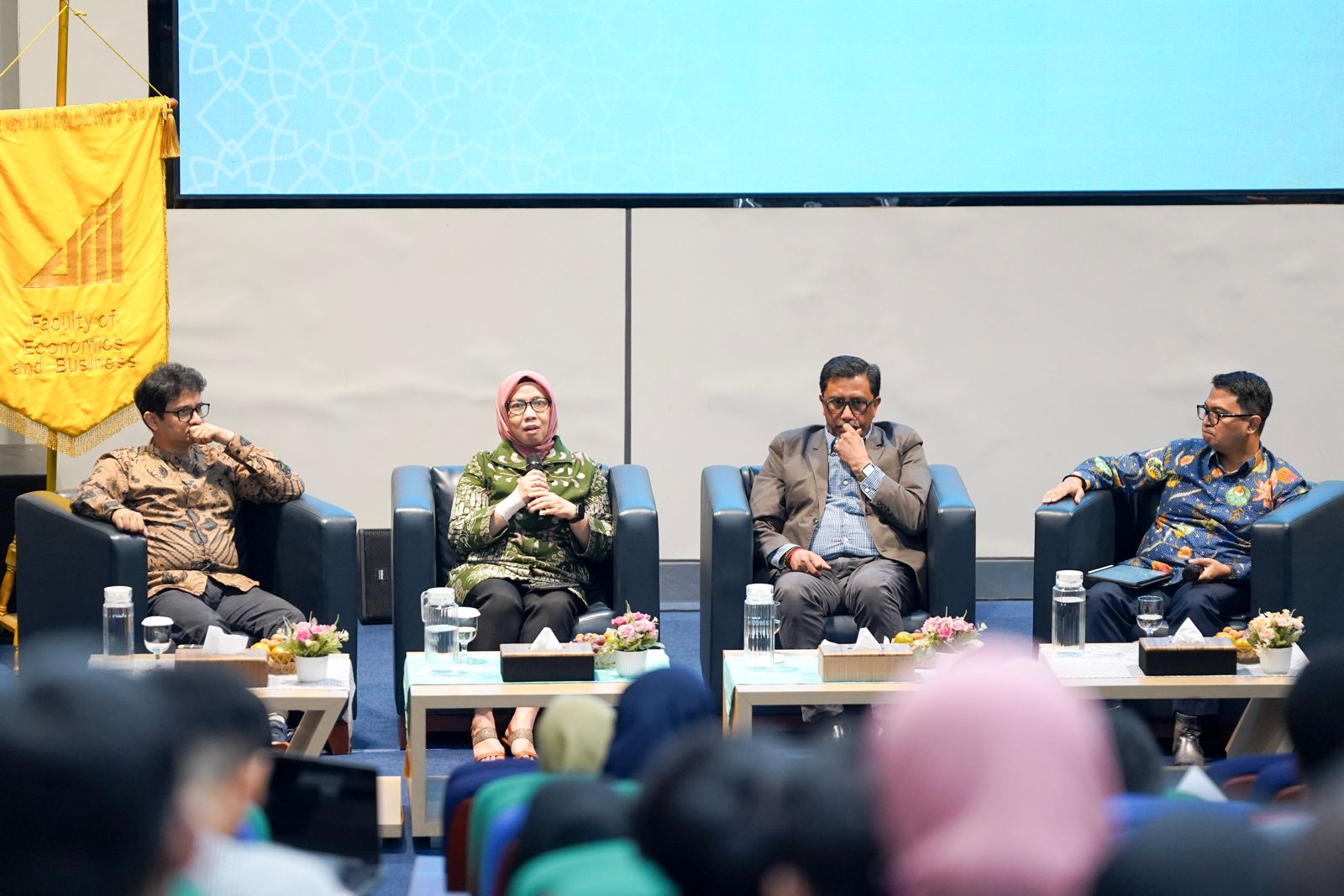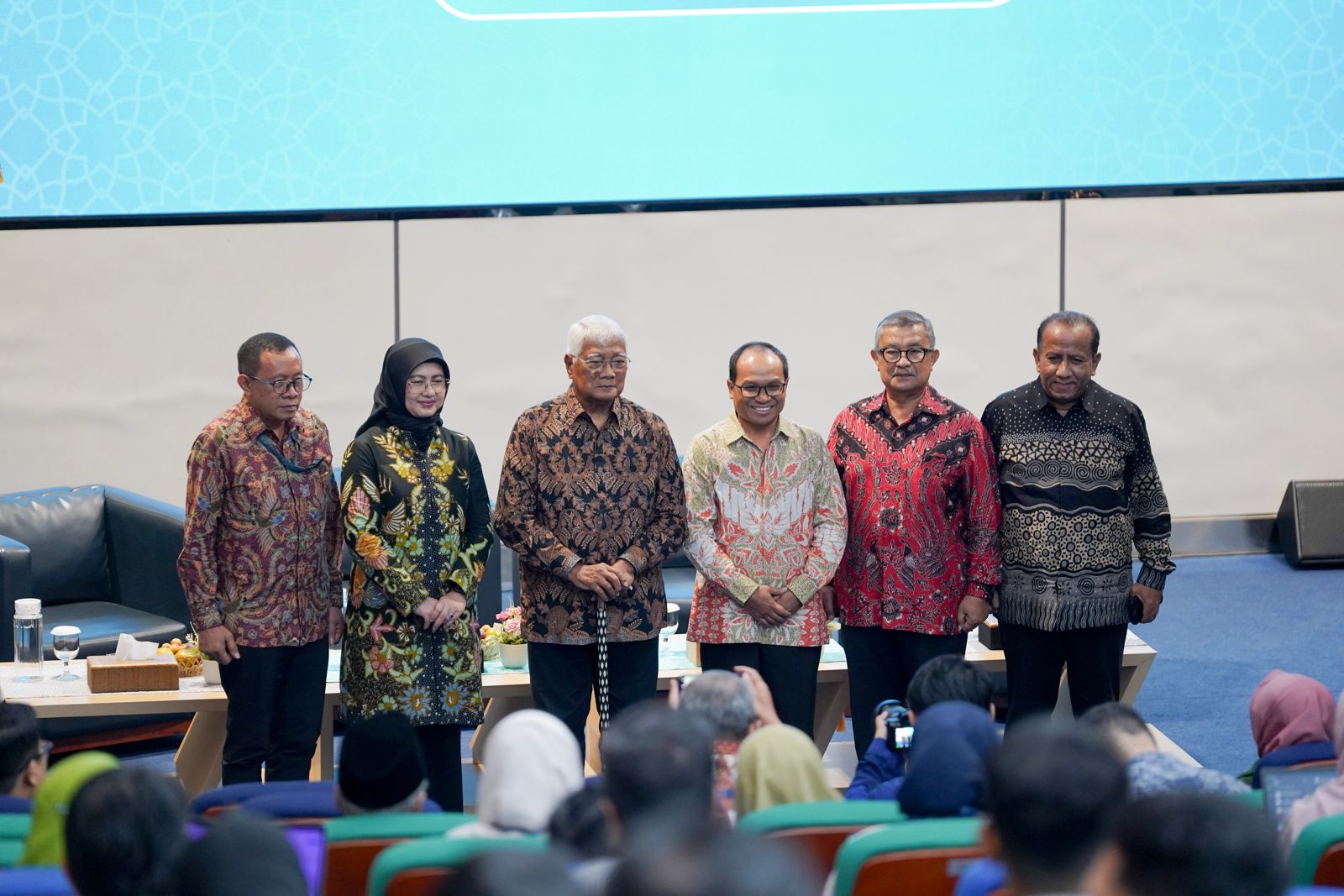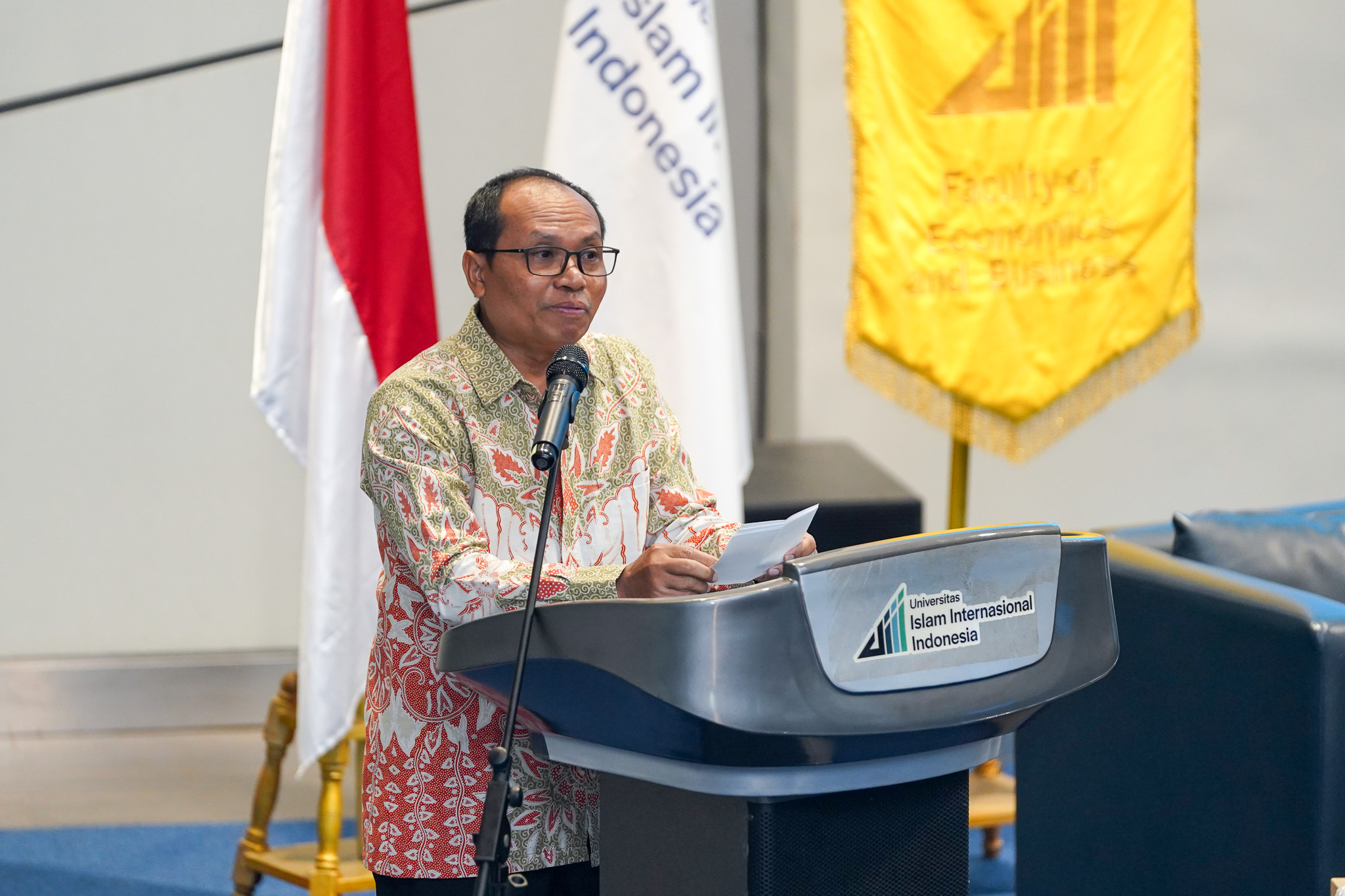More From News
Exploring the Depth of the Meaning of Fasting
March 3, 2026
May 28, 2025
Contributor: Supriyono | Editor: Dadi Darmadi | Photo: Achmad Jatnika

Depok, Indonesia – The UIII Faculty of Economics and Business successfully hosted the 4th International Conference on Muslim World Economy and Business (ICMWEB) 2025, held under the theme “Navigating the New Protectionism: Global South and Muslim World Economies in the New Trump Era.”
The two-day event, which convened distinguished policymakers, scholars, and business leaders, served as a timely platform to address the shifting global economic dynamics brought about by renewed protectionist policies.
Teguh Yudo Wicaksono, PhD, Head of the ICMWEB 2025 Organizing Committee, emphasized the timeliness and urgency of this year’s theme. “As we witness the return of protectionist policies under President Trump’s second administration, the global economic landscape is undergoing a big shift that demands our attention and collective wisdom,” he stated. He highlighted how emerging economies, particularly in the Global South and the Organisation of Islamic Cooperation (OIC) countries, face unprecedented challenges amid shifting trade dynamics, tariff regimes, and reconfigured global supply chains.

Dr. Yudo underscored the significance of the conference’s distinguished keynote speakers, including Professor Soedradjad Djiwandono, former Governor of Bank Indonesia (1993–1998), and Mr. Muhammad Lutfi, Indonesia’s former Trade Minister (2020–2022), whose insights on trade policy, diplomacy, and economic resilience offered valuable perspectives. Panels featuring experts like Prof. Niaz Asdullah (Senior fellow at IDEAS) and Prof. Shandre Thangavelu (Sunway University) and Prof Sahara (IPB University) explored the implications of U.S. protectionist policies and economic outlook, while industry leaders including Mr. Indra Kampono and Mr. Andry Asmoro examined practical strategies for the Indonesian banking sector.
Welcoming the participants, Prof. Dian Masyita, Dean of UIII’s Faculty of Economics and Business, contextualized the conference amid global economic shifts. “The recent OIC Economic Outlook highlights a resilient performance among member states, yet the resurgence of protectionist trade policies presents significant challenges,” she noted.
Prof. Dian also reaffirmed UIII’s commitment to fostering sustainable economic development and preparing future leaders through rigorous academic programs such as the MA in Economics, the Master of Finance with a focus on Sustainable Finance, and the PhD in Economics. She invited participants to contribute to the Muslim Business and Economic Review (MBER), the official journal of FEB UIII, encouraging the dissemination of research addressing contemporary challenges in Muslim world economies and business.
In his keynote address, UIII Rector Prof. Jamhari, Ph.D., underscored the importance of the conference theme in the context of evolving global dynamics. “The resurgence of protectionist sentiments, particularly in light of Trump’s new policies on tariffs, poses challenges to OIC countries heavily reliant on trade,” he explained. “These disruptions can discourage investment, destabilize currencies, and hinder economic growth, requiring innovative strategies and robust collaboration.”

Prof. Jamhari emphasized UIII’s unique mandate to integrate Islamic values with global perspectives, expressing confidence that ICMWEB 2025 would generate actionable insights, strengthen collaborations between researchers, policymakers, and practitioners, and contribute to the economic empowerment and resilience of the Global South and Muslim world.
The conference featured over 20 scholarly paper presentations covering topics ranging from digital transformation in Islamic finance to sustainable development challenges in OIC countries. This year’s ICMWEB not only facilitated knowledge sharing but also fostered meaningful collaborations aimed at building resilient and sustainable economies amid a shifting global order.
Universitas Islam Internasional Indonesia